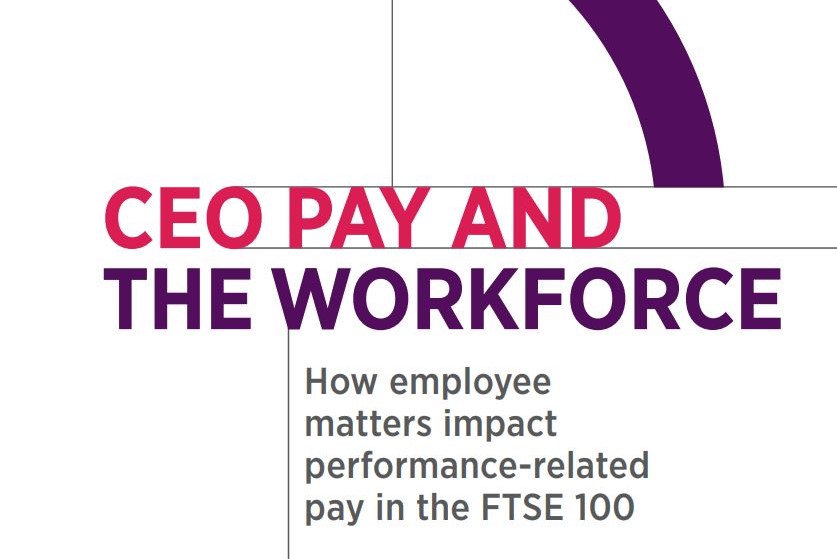High Pay Centre and CIPD analysis shows that despite an increasing interest in ESG (Environment, Social and Corporate Governance) factors, performance-related pay for FTSE 100 CEOs is still primarily based on financial returns to shareholders rather than the needs of a range of stakeholders.
For every pound a FTSE 100 CEO could earn for meeting an employee-related target, they could potentially receive £41 for meeting a financial metric.

The findings point to a clear disconnect: while ESG measures are often stated as important in business strategies, they are omitted from the measures that are considered for performance-related executive pay.
The research found that only 34% of FTSE 100 companies used employee-related metrics in their CEO performance-related pay package. Amongst the companies that used these metrics, they account for just 5.9% on average of the maximum incentive pay available to CEOs. Across the FTSE 100 as whole, employee-related metrics accounted for only 2% of maximum incentive pay. By contrast, all companies analysed in the research use financial metrics for their performance related pay packages. These metrics had an average weighting of 82.4% of total maximum potential incentive pay.
For short-term annual bonuses, employee-related metrics typically accounted for 11.2% of the potential maximum CEO bonus awards at the companies that used them.
For long-term incentive plans (LTIPs), employee-related metrics accounted for an average of just 9% of the total potential value of the plan at the companies that used them.
The three most used employee metrics for bonuses were: Health and safety (12 companies); Employee engagement (10); and Diversity and/or inclusion (9).
For LTIPs, the three most used metrics were: Employee engagement (4 firms); Conduct/culture (2); Diversity and/or inclusion (2).
The High Pay Centre/CIPD report notes that several studies suggest that the use of environmental and social metrics in CEO pay plans has increased in recent years. However, it remains far from standard practice.
This could be a result of the dominant role that shareholders play in UK corporate governance, approving board appointments and executive pay policies. It may also reflect that while financial measures such as company earnings or returns to shareholders are well understood, there is much less consensus on how to measure performance in terms of good employment practices and corporate culture.